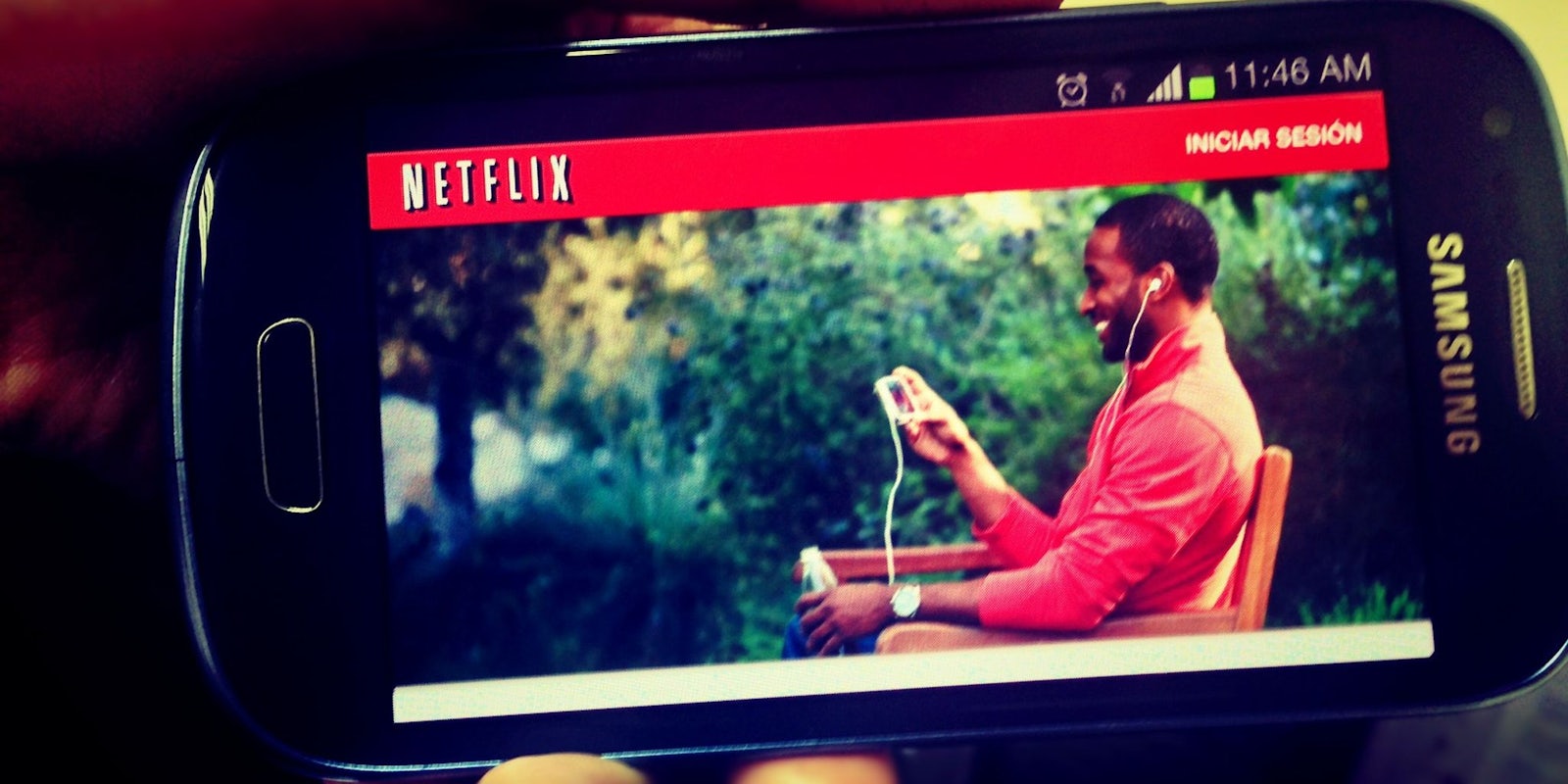Netflix is once again having its streaming content throttled, but this time it’s not the fault of a service provider—it’s Netflix itself. The company admitted to capping video streams for certain mobile networks around the world, including AT&T and Verizon.
In a blog post titled, “Helping Netflix Members Get More from Their Mobile Data Plans,” the streaming video service revealed that its default bitrate for viewing on mobile networks has been capped at 600 kilobits per second. In what is being largely seen as a dizzying effort to spin, Netflix explained this decision as an “effort to protect our members from overage charges when they exceed mobile data caps.”
Telecommunications companies are notably upset with Netflix over the decision to throttle its content. Jim Cicconi, AT&T senior executive vice president of external and legislative affairs, told the Daily Dot, “We’re outraged to learn that Netflix is apparently throttling video for their AT&T customers without their knowledge or consent.”
Verizon declined to provide comment, but explained to the Wall Street Journal, “Verizon delivers video content at the resolution provided by the host service, whether that’s Netflix or any other provider.”
The blog post from Netflix has caused a stir, though it could be a strategic one; the primary announcement from the company is a data saver feature set to roll out in May 2016. The new tool will give users control over the quality of their content instead of having the video automatically capped.
But for Netflix, once a strong advocate for net neutrality, the decision to cap its own content puts the company is a strange position. While it may argue there is consumer benefit in its decision, Netflix didn’t feel the same way when it accused Verizon of throttling its content in 2014.
At the time, a tense and accusatory back and forth between the streaming service and the largest mobile network provider in the United States nearly led to a legal showdown. Netflix general counsel David Hyman insisted at the time that Verizon was failing its responsibility to “provide its customers with the service it has provided them.”
Netflix has taken no issue with T-Mobile and its Binge On plan, which offers its subscribers the ability to stream video content from without it counting against their monthly data allotment. Video content is capped by T-Mobile at 480p bitrate, though reports indicate T-Mobile hasn’t been optimizing video but rather just throttling its network.
Last week, T-Mobile CEO John Legere accused the “duopoly” of AT&T and Verizon of throttling Netflix content, capping streams to a bitrate of 360p. The timing appears to be a little awkward now, given Netflix’s own admission of self-throttling.
On the topic of net neutrality, Jeremy Gillula, Staff Technologist with the EFF, offered the following response:
“While we’re disappointed to hear that Netflix has been throttling its videos for AT&T and Verizon customers, I think it’s important to realize that this wasn’t a violation of net neutrality, since it was the edge provider itself who made the decision to throttle its own traffic. Net neutrality is primarily about ensuring that Internet users can access any website or service without interference. In this case, AT&T and Verizon weren’t directly interfering, and Netflix customers who were unhappy with their experience were always free to switch to a different video service that provided higher bandwidth streaming.
With that said, our disappointment stems from the fact that Netflix didn’t explain this earlier, since we believe that all companies should be clear and transparent with their customers about what to expect when it comes to the services they subscribe to.”
H/T The Verge | Photo via Esther Vargas/Flickr (CC BY SA 2.0)


